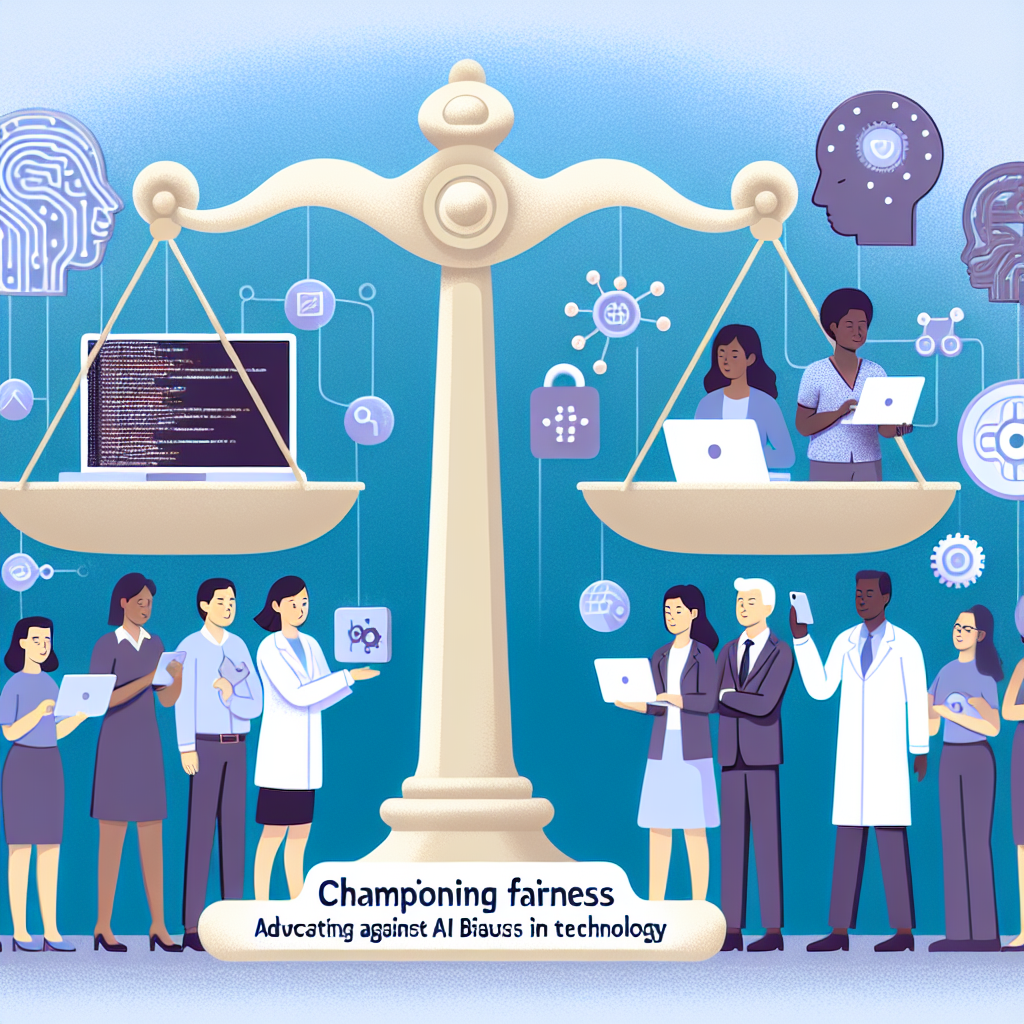In recent times, artificial intelligence (AI) has woven itself into the fabric of numerous sectors—from finance and healthcare to recruitment and criminal justice. However, the rise of AI technologies has also brought to light concerns about biases inherent in algorithms. The quest for equity in this digital era transcends mere technology; it is a movement for social justice aimed at ensuring that AI acts as a medium for inclusiveness rather than a driver of systemic discrimination.
Grasping AI Bias
AI bias denotes the systematic unfair discrimination that can arise in AI systems, often mirroring the biases present in the data used for model training. When historical datasets embody prejudices—be it racial, gender-based, or socioeconomic—these biases can be reflected and even magnified by AI systems. Numerous examples exist: facial recognition technologies have shown elevated error rates for people of color, while credit scoring systems may disadvantage certain demographic groups based on biased data.
The Implications
The consequences of AI bias are significant. In recruitment, for example, biased algorithms can result in the exclusion of qualified candidates based solely on their demographic characteristics. Within the realm of criminal justice, predictive policing tools can disproportionately impact marginalized communities, perpetuating cycles of injustice. The ramifications extend beyond individual lives, affecting societal structures and potentially reinforcing long-standing inequities.
The Advocacy Movement
In light of these challenges, an expanding coalition of advocates—comprising technologists, civil rights organizations, and policymakers—has come together to challenge AI bias. Advocacy initiatives concentrate on several critical areas:
1. Transparency and Accountability
A key demand from advocates is for enhanced transparency in AI systems. Understanding the decision-making processes of algorithms is essential for assessing their fairness. Initiatives like algorithmic audits are gaining traction, proposing regular evaluations of AI tools to identify and address biases. Public accountability measures, such as mandating tech companies to disclose data and methodologies used in their models, are equally vital.
2. Diverse Data Practices
Addressing AI bias requires that the datasets employed for training algorithms are inclusive and representative. Advocates call for data collection practices that encompass a broad spectrum of voices and experiences. This necessitates actively involving marginalized communities in the development and deployment of AI systems.
3. Education and Awareness
Another advocacy pathway lies in education. Stakeholders promote the integration of ethics and equity considerations into STEM curricula, preparing future technologists to recognize the social impacts of their work. Workshops and seminars focused on AI ethics are being organized to help current professionals identify and combat biases in existing systems.
4. Legislation and Regulation
Governments have a crucial role in regulating AI technologies to promote equity. Legislative proposals aim to establish standards for algorithmic accountability and to ensure that discriminatory practices are addressed. Advocates urge for laws that impose penalties on companies deploying biased AI systems, advocating for a shift toward responsible innovation.
Current Initiatives
Numerous organizations are spearheading efforts against AI bias. The Algorithmic Justice League, founded by Joy Buolamwini, is dedicated to combating bias in AI through public awareness, research, and advocacy. Likewise, Data for Black Lives empowers Black communities by advocating for data equity and supporting fair data usage in policymaking.
Corporate Accountability
Many tech firms are increasingly acknowledging their responsibility regarding AI bias. Initiatives such as Google’s AI Principles outline commitments to fairness and accountability in AI development. Additionally, several companies are establishing internal ethics boards to oversee AI projects, ensuring that diverse perspectives inform the design and implementation processes.
Looking Ahead
The struggle for equity against AI bias necessitates a collaborative endeavor involving technologists, advocates, policymakers, and affected communities. It demands a commitment to re-evaluating how we design, implement, and regulate AI technologies.
Final Thoughts
As AI continues to influence our realities, the urgency of addressing bias cannot be ignored. By championing transparency, inclusion, education, and regulation, we can aspire to create a future wherein AI acts as a force for good—empowering individuals irrespective of their backgrounds. The journey toward equitable AI is laden with challenges, but through collective advocacy, it is a path worth pursuing.

